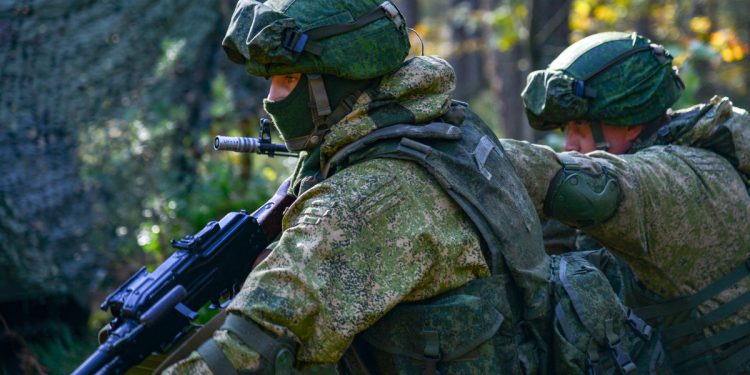The private military company Wagner is at the same time a Kremlin tool, a private company and a group of mercenaries. Which makes it difficult to grasp. But other mercenaries are working on the continent.
The history of private military company (CMP) "Wagner" remains today a field explored first and foremost by journalists. In terms of field studies and empirical observations, university researchers do not devote not enough research to this phenomenon. It is imperative to remedy this academic blind spot by studying Russian mercenaries with the same rigor as other actors in international political and military life.
A truncated analytical framework
Today, the media narrative revolving around Wagner, a private military companion known since 2014 for her close ties to the Russian state, is constantly being recycled, sometimes enriched with additional characters or a new anecdote – but without analytical breakthrough, work that only academia can achieve.
For example, the Russian businessman Yevgeny Prigojine, known for his closeness to Vladimir Putin, has recently acknowledged to be the founder and patron of Wagner, which gave rise in the media to an avalanche of articles which ultimately taught us nothing substantially new about the functioning or the organization of the group.
The various press articles devoted to Wagner also give little information on the effects, however profound and complex, that the presence of mercenaries has on the social fabric and on local governance in the territories at war. Almost nothing is known about how the group is perceived by the communities residing in the areas where it operates.
Moreover, the current geopolitical situation, which encourages taking sides “for or against the Russians”, distorts the frameworks of analysis and generates one-dimensional narratives. One of the results of this simplistic but bitter polarization is the illusion that Russia will soon end up leaving Africa, since it would need to redeploy its men, including those of Wagner, for the needs of its war in Ukraine.
However, the growing social fragility and successive crises of political legitimacy in the African countries where Wagner currently operates – for example, the RCA, Mali, Libya, Sudan – create fertile ground for the sustainable expansion of a new form of CMP. In any case, the “demand” to which Wagner responds – that of local military elites for security services without human rights constraints – is not about to fade away. Indeed, a general trend towards a authoritarianism tougher and less contested by Western democracies seems to persist.
Wagner, a manifestation of the privatization of security on a global level
Due to a lack of academic depth, the current reading remains focused on relations between States and, consequently, misses two important dynamics: the position of the Russian PMCs in a context marked by the global privatization of security services ; and the local effects of their operations.
These two elements have a strong impact on the dynamics of conflicts. With regard to Wagner, therefore, there is an urgent need to distance ourselves from the narrative of great power competition. The main difficulty of analysis here lies in the fact that the Russian CMPs, including Wagner, but also Patriot, Sewa Security Services, or Shchit are a product of the country's internal politics. Although protean, they all remain linked to the Kremlin. The presence of these semi-state forces in countries at war, including Ukraine, Syria and Libya, goes hand in hand with Russia's military, political and economic interests.
However, looking at Wagner from the point of view of the general trend in the privatization of security, one realizes that the group is not an isolated phenomenon. Long before Wagner, in fact, two other companies had already transformed the privatization of war: Executive Outcomes (EO) and Blackwater.
Wagner on the heels of Executive Outcomes and Blackwater
In 1989, Eeben Barlow, a former Lieutenant Colonel in the South African Defense Force, founded Executive Outcomes by recruiting the military from members of units disbanded following the end of apartheid. Barlow presented his company as a alternative to blue helmets. EO interventions in Angola and Sierra Leone in 1992 and 1995-1997 respectively contributed to the implementation of cease fire in these two countries. In 1996, government forces in Sierra Leone, supported by EO, subdued the Revolutionary United Front (RUF) rebels (Executive Outcomes will be paid there in part with diamond concessions). In Angola, this military company fought on behalf of the Angolan government against UNITA after the latter refused to accept the results of the elections in 1992. In both cases, the "success" of the operations could be explained by the use of force without the constraints traditionally associated with States. However, attribution to EO of mining rights has caused concern among diplomats and been criticized by the media.
The “Global War on Terror” launched in 2001 kicked the US privatization of war into high gear. In 2010, the workforce of private military companies exceeded those of American troops in Iraq and Afghanistan. The large CMPs, the best known of which is Blackwater, presented their services as part of the "total strength" of the US Army. They were recruiting into the army, were hiring senior civil servants to gain access to government networks, were recruiting soldiers in Latin America for operations in Iraq and engaged in direct combat against the insurgents.
In his 2014 book, The Modern Mercenary, security specialist Sean McFate has divided CMPs into two types: on the one hand, mercenary companies; on the other, the military contractors.
Mercenary corporations, like EO, are private armies that "wage autonomous military campaigns." Military contractors, such as Blackwater, "bolster the regular armed forces" of a powerful state. McFate believed that these two types of CMPs could merge into a new category, which would offer "combat-oriented services" with even less attention to human rights.
The Wagner group could well represent this new category of CMP: both a mercenary company and a military enterprise. The group presents his company as being at the heart of the Russian national interest, and recruits within the Russian army as well as in third countries.
Africa, Eldorado of mercenaries
It is not surprising that Russian PMCs are active in Africa. The continent is a important market for all CMPs.
The Russian CMPs are not the only mercenaries to operate there. In October 2020 the representatives of the two rival Libyan camps signed a OK supported by the United Nations, which committed both parties to stop using foreign mercenaries. The agreement had focused on the role of the Russian PMCs, i.e. the Wagner Group and the Syrian mercenaries hired by Turkey.
The Libyan conflict puts in the presence of many men paid to fight: rebels Sudanese et Chadians, fighters from southern Libya recruited in the north and young men across the country who lend their services to one side or the other. We therefore find in Libya many individuals corresponding to the ambiguous definition of the term "mercenary" given by international law, but the strategic narratives circulating in Western capitals tend to erase the distinctions that exist between them.
In the Central African Republic, former President François Bozizé came to power in 2003 With the support Chadian mercenaries. In 2013, he was overthrown by the Seleka rebellion, including many mercenaries from Sudan and Chad. To return to power, Bozizé mobilized predominantly Christian self-defense groups, the anti-Balaka, to fight the predominantly Muslim Seleka. A civil war broke out in 2013; Many armed groups then arise, whose alliances frequently go beyond divisions with a religious connotation.
Wagner appeared in 2017 as a supporter of the Central African armed forces fighting several groups, in particular the six armed groups (3R, UPC, FPRC, MPC, and two anti-Balaka groups) brought together by Bozizé in 2020 to overthrow the government. The strongest group, the UPC, like other armed groups fighting Wagner, recruits its fighters from outside the CAR. One of the main managers of Wagner's operations in the CAR has pass years in the French Foreign Legion, which has a long history in the CAR.
A favorable context for CMPs
Researchers need to learn how local conflict dynamics influence CMP operations. Russian CMPs are accused of human rights violations in Libya, riding a RCA in Sudan and Mali. But the type, scale and scope of these violations differ between conflicts and often reflect pre-existing patterns when they occur.
The rise of new-generation PMCs is partly linked to the crisis of legitimacy of UN peace operations. Peacekeeping interventions have often failed to protect civilians, encouraged violence and strengthened the power authoritarian leaders. The appeal of “military solutions” as an alternative is back. But today, UN missions and those deployed by mercenaries take place in the same theaters – this is the case in Mali, CAR or Libya – which generates growing tensions.
The usual definitions of mercenaries do not take into account the considerable role they play today in conflicts. Russian PMCs conduct their operations in regions where a significant proportion of the population bears arms and where violence is increasingly commonplace. The new type of CMP can act as regional mercenaries in one conflict, and professional state-backed forces in another.
The field of conflict resolution must take full account of the phenomenon of mercenaries. Despite theories that peace processes should include all armed parties to a conflict, norms of inclusion are often arbitrary. Mercenaries and those considered “terrorists” are generally excluded. It took years after 11/XNUMX to see greater openness to dialogue with jihadists in the Sahel.
Do not take into account the local effects of the entrenchment of jihadists turned out to be a mistake. The same error should be avoided with CMPs, as the impact of their action on local communities and on peace processes is significant. As part of their mission to facilitate humanitarian corridors and contribute to the protection of civilian lives, international organizations have a duty to find ways to understand the functioning of mercenaries, including Russian CMPs, and to include them in peace processes. Taking these actors into consideration is empirically urgent, and requires further independent research efforts.
Wagner is the product of structural changes that significantly affect local governance, peacekeeping, conflict resolution mechanisms and humanitarian operations. The service offered by Russia has proved so attractive that other nations will inevitably seek to emulate its model characterized by a strong adaptability regarding the financing of the mission according to local opportunities.
This article was co-authored with John Lechner, freelance journalist and researcher.![]()
![]()
Tatiana Smirnova, Researcher, FrancoPaix Center for Conflict Resolution and Missions of Peace, University of Quebec in Montreal, University of Quebec in Montreal (UQAM) and Jalel Harchaoui, Senior Fellow, Global Initiative against Transnational Organized Crime, House of Human Sciences Foundation (FMSH)
This article is republished from The Conversation under Creative Commons license. Read theoriginal article.















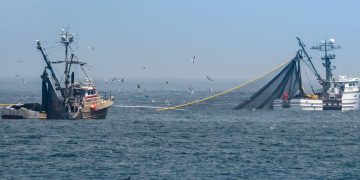

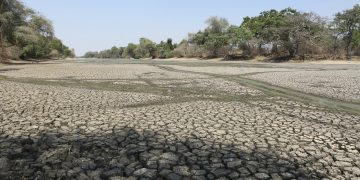
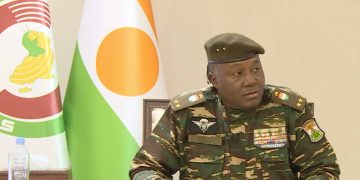
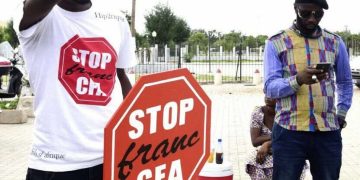

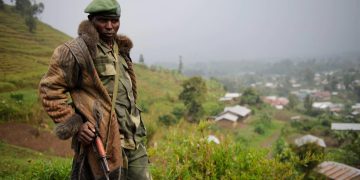




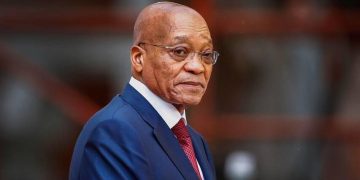

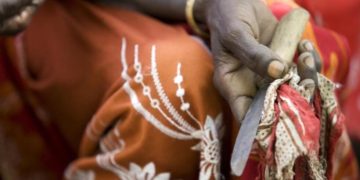

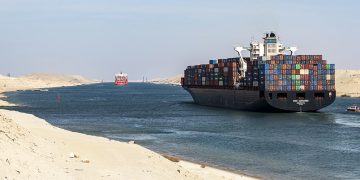
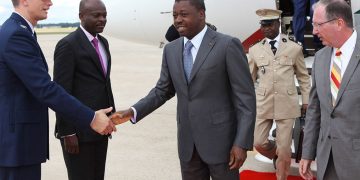



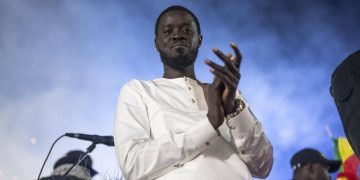



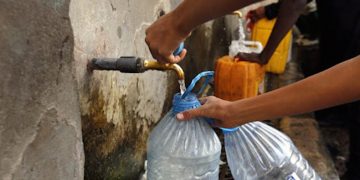
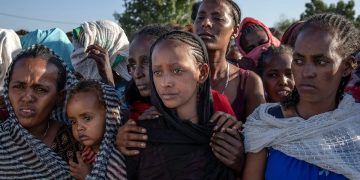

![[Editorial] 30 years later, is apartheid really over?](https://lejournaldelafrique.com/wp-content/uploads/2021/06/caricature-jda-apartheid-360x180.jpg)
![[Edito] Gabon and Commonwealth: the whims of Prince Ali](https://lejournaldelafrique.com/wp-content/uploads/2021/06/caricature-JDA-Bongo-360x180.jpg)
![[Editorial] Facebook and Twitter, more dictators than dictators?](https://lejournaldelafrique.com/wp-content/uploads/2021/06/Caricature-JDA-FB-TW-360x180.jpg)
![[Edito] Rwanda: for the French apologies, we will have to go back](https://lejournaldelafrique.com/wp-content/uploads/2021/05/Caricature-rwanda-JDA-360x180.jpg)
![[Edito] Guinea: Alpha Condé, the oppressed turned oppressor](https://lejournaldelafrique.com/wp-content/uploads/2021/05/Caricature-Alpha-Conde-360x180.jpg)
![[Edito] CFA Franc: a facelift cut to measure for France](https://lejournaldelafrique.com/wp-content/uploads/2021/05/Caricature-JDA-CFA-360x180.jpg)
![[Edito] Riyad Mahrez: One, two, three, viva l'Algérie!](https://lejournaldelafrique.com/wp-content/uploads/2021/05/caricature-Mahrez-360x180.jpg)
![[Edito] Niger: Mohamed Bazoum begins a delicate balancing act](https://lejournaldelafrique.com/wp-content/uploads/2021/04/image_6483441-1-360x180.jpg)
